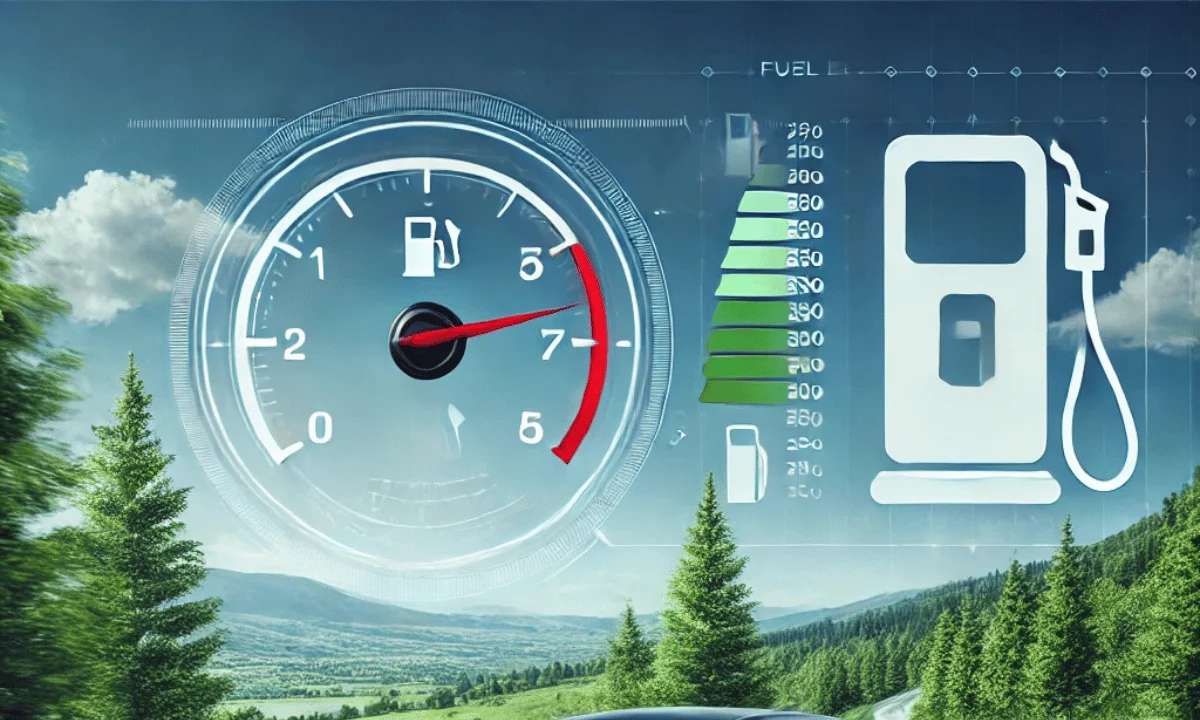Introduction
How to Increase Car Mileage – With rising fuel prices and growing environmental concerns, increasing car mileage has become a priority for many vehicle owners. Better mileage not only saves money but also reduces carbon emissions, contributing to a healthier planet. Whether you drive a gasoline, diesel, or hybrid vehicle, improving fuel efficiency is possible by adopting the right driving habits, maintaining your vehicle properly, and making smart choices on the road.
In this comprehensive guide, we will discuss various methods to improve car mileage, including maintenance tips, driving techniques, fuel choices, and additional strategies to maximize efficiency.
1. Understanding Car Mileage
Car mileage, also known as fuel efficiency, is the distance a vehicle can travel per unit of fuel consumed. It is typically measured in miles per gallon (MPG) or kilometers per liter (km/l). Several factors influence mileage, including engine condition, driving habits, road conditions, and fuel quality.
Factors Affecting Mileage
- Engine Efficiency: A well-maintained engine runs smoothly and burns fuel more efficiently.
- Driving Style: Aggressive driving, excessive speeding, and frequent braking reduce fuel economy.
- Road Conditions: Stop-and-go traffic, hilly terrain, and poor roads can negatively impact mileage.
- Tire Condition: Underinflated or misaligned tires increase rolling resistance, reducing fuel efficiency.
- Weight Load: Carrying excessive weight puts more strain on the engine, consuming more fuel.
- Fuel Quality: Using the right type of fuel and additives can enhance performance.
Read More – How to Remove Tan
2. Proper Vehicle Maintenance for Better Mileage
Regular vehicle maintenance is crucial for achieving optimal fuel efficiency. Here are essential maintenance tips to improve your car’s mileage:
a. Regular Engine Servicing
- Change engine oil as per the manufacturer’s recommendation.
- Replace air and fuel filters to maintain proper fuel combustion.
- Check and clean the fuel injectors to avoid clogging.
- Ensure the spark plugs are in good condition to enhance ignition efficiency.
b. Tire Maintenance
- Keep tires inflated to the recommended pressure levels.
- Rotate and align tires periodically to prevent uneven wear.
- Choose low rolling resistance tires for better fuel economy.
c. Brake System Check
- Avoid dragging brakes, as it increases fuel consumption.
- Ensure the braking system is working efficiently to reduce unnecessary resistance.
d. Battery and Electrical System
- A weak battery forces the alternator to work harder, reducing mileage.
- Keep battery terminals clean and free from corrosion.
e. Fuel System Maintenance
- Use high-quality fuel and recommended additives to keep the engine clean.
- Periodically check the fuel pump and replace it if necessary.
3. Smart Driving Techniques to Improve Mileage
a. Drive Smoothly
- Avoid sudden acceleration and hard braking.
- Maintain a consistent speed to reduce fuel wastage.
b. Use Cruise Control on Highways
- Cruise control helps maintain a steady speed, improving fuel efficiency.
c. Avoid Idling
- Turn off the engine when parked or waiting for long periods.
- Modern engines consume less fuel when restarted than when idling.
d. Drive at Optimal Speeds
- Driving at moderate speeds (50-80 km/h or 30-50 mph) enhances fuel economy.
- High speeds increase air resistance, reducing mileage.
e. Minimize Air Conditioner Use
- AC consumes extra fuel; use it only when necessary.
- Keep windows slightly open at lower speeds to allow ventilation.
4. Fuel Choices and Efficient Refueling Practices
a. Use the Right Fuel Type
- Check the vehicle manual for recommended fuel grades.
- Avoid using lower-grade fuel that can cause knocking and inefficiency.
b. Refuel at Optimal Times
- Fuel expands in heat, so refuel early in the morning or late at night to get a denser amount of fuel.
c. Keep the Fuel Tank Tightly Sealed
- A loose fuel cap allows fuel to evaporate, reducing efficiency.
5. Reducing Vehicle Load and Drag
a. Remove Unnecessary Weight
- Avoid carrying excess baggage in the trunk.
b. Use Aerodynamic Accessories
- Remove roof racks and carriers when not in use.
- Avoid open windows at high speeds to reduce drag.
6. Advanced Techniques to Enhance Mileage
a. Use Synthetic Oils
- Synthetic lubricants reduce friction and improve engine efficiency.
b. Install a Fuel Efficiency Monitor
- Monitoring real-time fuel consumption helps adjust driving habits.
c. Opt for Hybrid or Electric Vehicles
- Consider hybrid cars or EVs for long-term savings and sustainability.
Conclusion
Improving car mileage requires a combination of proper maintenance, smart driving habits, and fuel-conscious decisions. By following the strategies outlined in this guide, you can save money on fuel, reduce your carbon footprint, and enhance your vehicle’s lifespan. Start implementing these tips today and experience the benefits of a fuel-efficient car!
